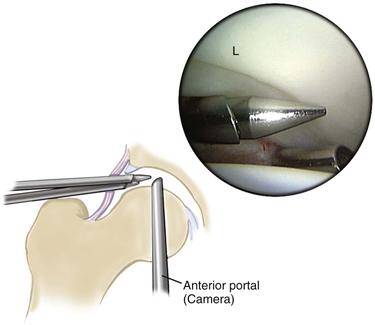
Hip Arthroscopy
Mr Nezar Tumia Explains What to Expect
Hip arthroscopy is a minimally invasive surgical procedure used to treat a variety of hip conditions, particularly suitable for young and active patients. Our approach prioritises personal attention and dedication to every detail, ensuring that everything we do reflects our commitment to excellence.
Considering Hip Arthroscopy Surgery?
Living with hip pain and reduced mobility can significantly impact your quality of life—especially if you're used to being active or competing in sports. Hip arthroscopy surgery is often an effective solution, restoring function, reducing discomfort, and helping you return to the lifestyle you enjoy.
What Is Hip Arthroscopy Surgery?
Hip arthroscopy is a minimally invasive procedure performed using a small camera and instruments inserted through tiny incisions. This allows the surgeon to visualise the inside of the hip joint and address various conditions without the need for a large incision.
Hip arthroscopy can be used to treat conditions such as:
- Femoroacetabular impingement (FAI)
- Labral tears
- Cartilage damage
- loose bodies
- soft tissue and tendon conditions
How is hip arthroscopy performed?
During hip arthroscopy, the surgeon will:
- Often make two small incisions around the hip joint.
- Insert an arthroscope (a small camera) to visualise the inside of the joint.
- Use small instruments to repair or remove damaged tissue.
Potential Advantages of Hip Arthroscopy:
- Minimally invasive procedure
- Smaller incisions and less scarring
- Faster recovery time
- Reduced pain after surgery
Who Is Suitable for Hip Arthroscopy?
Hip arthroscopy is typically recommended for patients with hip pain that has not responded to conservative treatments such as physical therapy or medication.
Ideal candidates often:
- Experience hip pain that limits daily activities
- Have a specific hip condition that can be addressed with arthroscopy
- Are in good overall health
Factors such as age, the severity of your condition, and overall health will be taken into account by your surgeon.
How do I prepare for hip arthroscopy surgery?
Preparation for hip arthroscopy includes:
- Medical evaluations and imaging (X-rays, MRIs)
- Pre-operative physical therapy to strengthen muscles around the hip
- Adjusting medications and stopping blood thinners as recommended by your surgeon
- Arranging for help with daily activities during recovery
What Happens on the Day of Surgery?
- You’ll be asked not to eat for 6 hours before surgery, but you may drink water up to 2 hours before.
- You’ll meet your surgeon and anaesthetist beforehand to discuss the procedure and your anaesthetic options—typically a general anaesthetic.
- Surgery lasts about one to two hours.
- You’ll be monitored in recovery before returning to the ward.
Pain Management and Early Mobilisation
After surgery, pain management will include medication and local anaesthesia. Mr Tumia’s practice adapts an enhanced recovery programme, aiming to get patients moving as soon as possible after surgery.
You’ll typically start walking with crutches soon after recovery from anaesthesia, bearing weight as instructed by your surgeon.
Will I need physical therapy after surgery?
Yes, physical therapy is a critical part of recovery. It begins soon after surgery to help regain strength, flexibility, and mobility. Your therapist will design a program tailored to your needs and recovery progress.
What Is the Recovery Timeline?
Recovery varies between individuals, but most patients:
- Return to daily activities and sedentary work within 6-8 weeks
- Resume sports and higher-level exercise after 3-6 months, depending on the surgeon's recommendations and your healing progress
Activities to Avoid After Surgery
You should:
- Follow weight-bearing instructions as directed by your surgeon.
- Avoid high-impact or twisting sports until cleared by your surgeon.
Your team will guide you on safe movements and provide physiotherapy support.
When Can I Drive?
You can usually drive after 2-4 weeks, once you are no longer taking strong pain medication and can perform an emergency stop.
When Can I Exercise Again?
Gentle exercise can usually begin after 2 to 4 weeks. A full return to sports will take several months. Your recovery plan will be tailored to your fitness level and goals.
What is the success rate of hip arthroscopy surgery?
The success rate of hip arthroscopy in carefully selected hip conditions is generally high, with many patients reporting significant pain relief and improved hip function. The outcome depends on the specific condition being treated and individual factors.
What are the risks of hip arthroscopy surgery?
Potential risks include:
- Infection
- Blood clots
- Fracture
- Stiffness or limited motion
- Nerve or blood vessel injury
- Continued pain
Why choose Mr Tumia to do my surgery?
Mr Nezar Tumia is a senior orthopaedic surgeon with almost 20 years experience in hip arthroscopy surgery. He is dedicated to providing the best possible care for his patients.
Want to Learn More?
If you’re struggling with hip pain or limited mobility, speak to your GP about your options—including the potential for hip arthroscopy surgery.
To book an appointment with Mr Tumia:
"I am now able to lead a normal active life. Before the operation I was in constant pain, now I can enjoy walking and golf again."
O H
Book a consultation
Take the first step towards a pain-free, active life. Contact us today to schedule a consultation and discuss your hip arthroscopy options in Newcastle upon Tyne.






